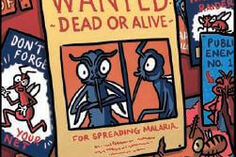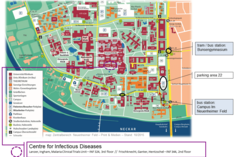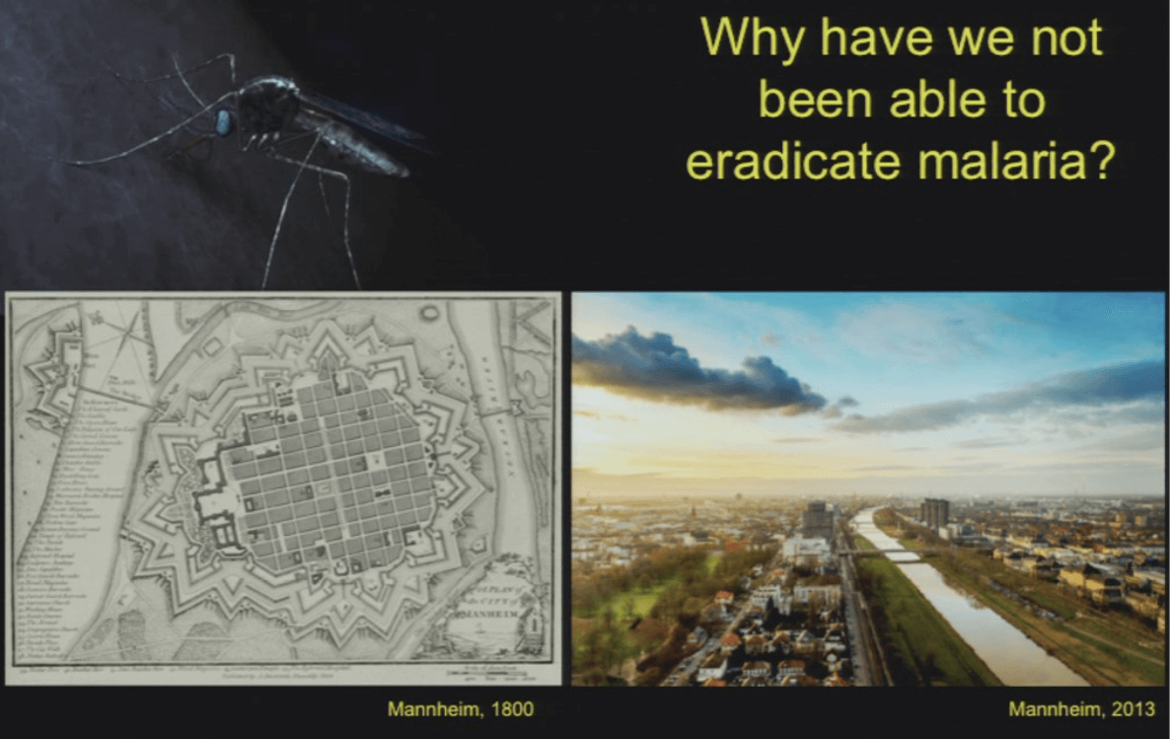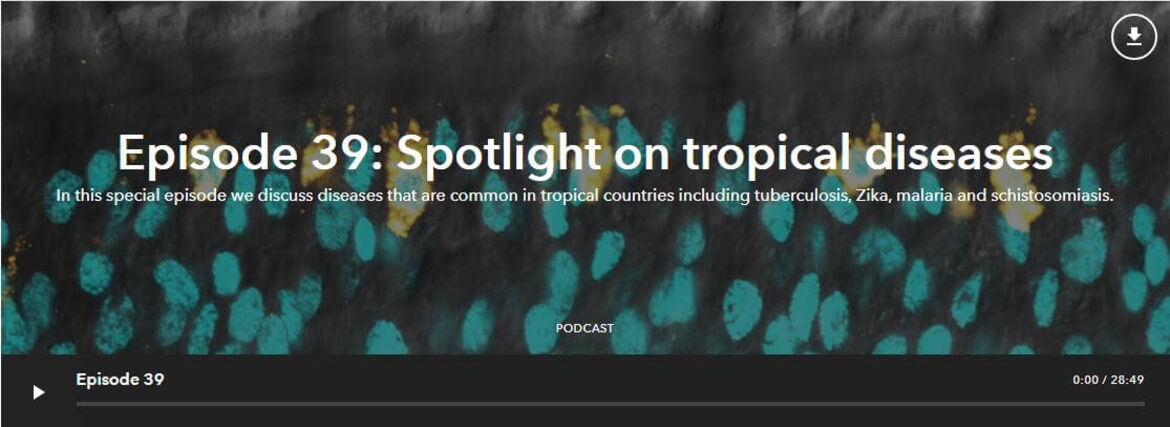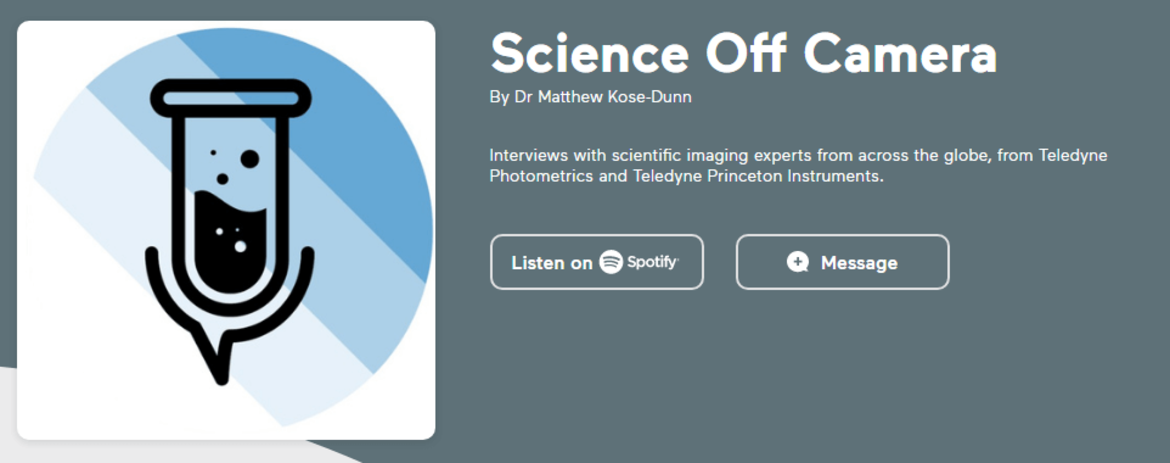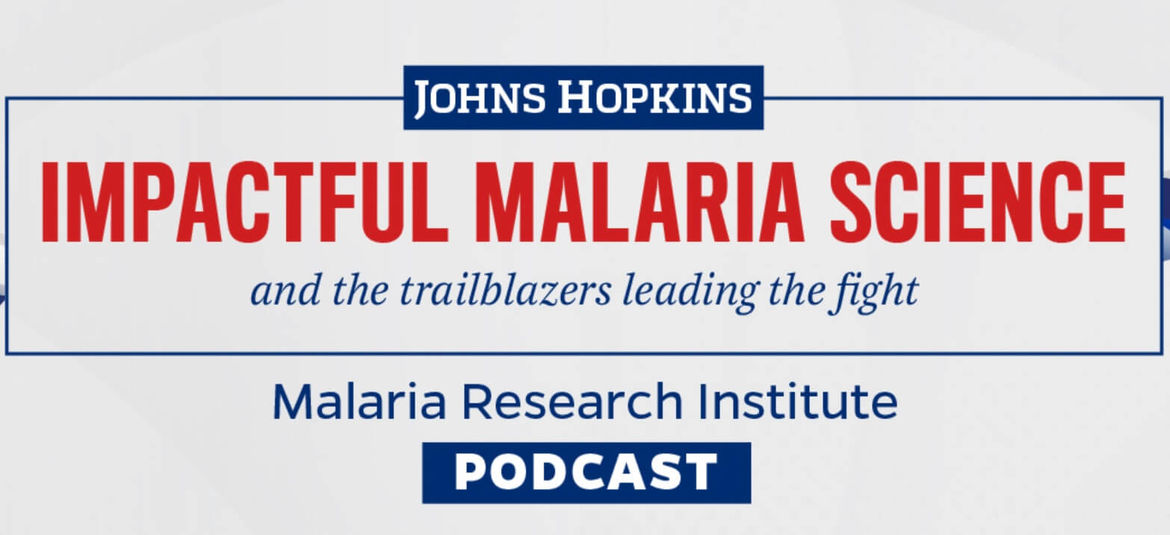Video von SciShow darüber, wie ein uraltes Heilmittel (Artemisinin) zu einem modernen Medikament gegen Malaria wurde
Folgen Sie der Wissenschaftlerin Tu Youyou (Nobelpreis 2015) auf ihrer Suche nach einem Mittel gegen Malaria.
Vortrag von F. Frischknecht: Warum ist es uns nicht gelungen, Malaria auszurotten? (auf Englisch)
Folgen Sie Friedrich Frischknecht, Professor für Integrative Parasitologie an unserer Abteilung, der 2014 diesen sehr aufschlussreichen Vortrag gehalten hat. Sein Vortrag wurde zusammen mit vielen anderen freundlicherweise vom EMBL (Europäisches Laboratorium für Molekularbiologie) Heidelberg im Rahmen der virtuellen Seminarreihe "Infektionskrankheiten und Gesellschaft" der Öffentlichkeit zugänglich gemacht.
Podcast: Schlaglichter der Hochschulforschung - Folge 5 zum wissenschaftlichen Nachwuchs in Deutschland
Eine Karriere in der Wissenschaft ist gekennzeichnet von hohem Arbeitseinsatz, der Weg ist oft begleitet von Unsicherheiten in den Beschäftigungsverhältnissen. Der Bundesbericht Wissenschaftlicher Nachwuchs (BuWiN) erscheint daher einmal pro Legislaturperiode, um die neuesten Zahlen zur Promotions- und Post-Doc-Phase sowie den Karrierewegen, Beschäftigungsbedingungen und beruflichen Perspektiven für Nachwuchswissenschaftlerinnen und -wissenschaftler in Deutschland zu liefern. In dieser Podcast-Folge kommt auch unser AG-Leiter Freddy Frischknecht zu Wort, um einen Einblick in die Situation in den Biowissenschaften zu geben.
TED Talk von F. Osier: "Der Schlüssel zu einem besseren Malaria-Impfstoff" (nur auf Englisch)
Veröffentlichung: Oktober 2018 über YouTube (gefilmt auf der TED-Konferenz 2018, Vancouver).
Unsere ehemalige Gruppenleiterin Faith Osier wurde 2018 als TED Fellow ausgewählt und gehörte damit zu einer Gruppe von 20 Changemakern aus der ganzen Welt, die im April 2018 in Vancouver einen Vortrag auf der TED-Bühne hielten, welcher auf der TED-Homepage und auf YouTube verfügbar ist.
Über TED: TED ist eine gemeinnützige Organisation, die sich der Verbreitung von Ideen widmet, in der Regel in Form von kurzen, kraftvollen Vorträgen (18 Minuten oder weniger). TED begann 1984 als Konferenz, auf der Technologie, Unterhaltung und Design zusammenkamen, und deckt heute fast alle Themen - von Wissenschaft über Wirtschaft bis hin zu globalen Fragen - in mehr als 100 Sprachen ab. Unabhängig organisierte TEDx-Veranstaltungen tragen dazu bei, Ideen auf der ganzen Welt zu verbreiten.
Podcast mit Fokus auf Tropenkrankheiten (nur auf Englisch)
Veröffentlichung: Juni 2017, eLIFE-Podcast, Folge 39
In dieser Sonderfolge des Podcasts geht es um Krankheiten, die in tropischen Ländern verbreitet sind, darunter Tuberkulose, Zika, Malaria und Bilharziose.
Hier im Besonderen: Malariaparasiten auf dem Vormarsch.
Ein Protein namens TRP1 ermöglicht es den Parasiten, die Malaria verursachen, sich innerhalb von Moskitos zu bewegen. Dieses Kapitel basiert auf einem aktuellen Forschungsartikel der AG Frischknecht.
Podcast "Wissenschaft abseits der Kamera" - Folge 41 mit F. Frischknecht (auf Englisch)
Veröffentlichung: 27. September 2021, Science off Camera-Podcast, Folge 41
Im Interview führt uns unser Gruppenleiter Freddy Frischknecht zurück zu den Anfängen seiner wissenschaftlichen Karriere als junger Student in Berlin und lüftet das Geheimnis, wie er in der Malariaforschung gelandet ist. Natürlich erzählt er uns auch von seiner aktuellen Forschung und was daran so faszinierend ist.
Malaria Minute Podcast - Folge vom 17. Juni 2022 mit Freddy Frischknecht (nur auf Englisch)
Veröffentlichung: Podcast des Johns Hopkins Malaria Research Institute verfügbar seit September 2021
In der Folge vom 17. Juni 2022 "zeigen" unser Gruppenleiter Freddy Frischknecht und sein Kollege Ulrich Schwarz den Malariaparasiten aus nächster Nähe und erwecken ihn durch Zellbiologie und Physik zum Leben, indem sie die wirbelartige Bewegung der Sporozoiten und den Nutzen interdisziplinärer Forschung beschreiben.
Aber schauen Sie sich doch auch die anderen Folgen an, es lohnt sich auf jeden Fall!
Podcast "Das Leben in der Wissenschaft" - Folge 3 mit N. Kilian
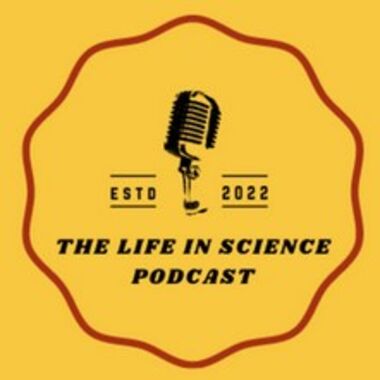
Veröffentlichung: 21. September 2022, Life in Science-Podcast, Folge 3
Eine weitere Ergänzung zu den Outreach-Aktivitäten unserer Abteilung: Nicole Kilian, eine unserer ehemaligen Gruppenleiterinnen, wurde für die Podcast-Reihe "The Life in Science" von Arjun Udupa, MSc-Student in molekularen Biowissenschaften an der Universität Heidelberg, interviewt. Für diesen Podcast, der auf Spotify verfügbar ist, interviewt Arjun Heidelberger Wissenschaftler mit unterschiedlichen Profilen und in verschiedenen Karrierestufen. Als Hörer erhält man so einen persönlicheren Einblick und ein besseres Verständnis dafür, was einen Menschen dazu bewegt, diesen sicherlich nicht einfachen Karriereweg einzuschlagen.
Hört doch einfach mal rein bei Arjuns Podcast! (insbesondere natürlich das Interview mit Nicole)
Marsilius Podcast mit F. Frischknecht
Veröffentlichung: 27. März 2023, Marsilius Podcast, Episode 8
Über das „Phänomen Fieber“ und die Wirkung von Malaria diskutieren drei Marsilius-Fellows aus medizinischer, physikalischer und historischer Sicht. Friedrich Frischknecht (Parasitologie), Stefanie Gänger (Neuere Geschichte) und Ulrich Schwarz (Biophysik) befassen sich mit historischen wie gegenwärtigen Erklärungsansätzen, Präventions- und Heilmethoden für „Fieber“ sowie mit gesellschaftlichen Reaktionen, insbesondere auf epidemisch auftretende „Fieberkrankheiten“.
Radio-Interview mit Freddy Frischknecht - Parasiten aus schulmedizinischer Sicht
Veröffentlichung: 25. Juni 2025, Kontrafunk - Mensch und Medizin, Sendung “Parasiten, Mikrobiologie, Hausgeburt”
Prof. Frischknecht im Gespräch mit Moderatorin Corinna Zigerli. Obwohl viele Menschen davon betroffen sind, wissen die wenigsten etwas darüber: Parasiten. Unser AG-Leiter und Professor für Integrative Parasitologie klärt auf.

